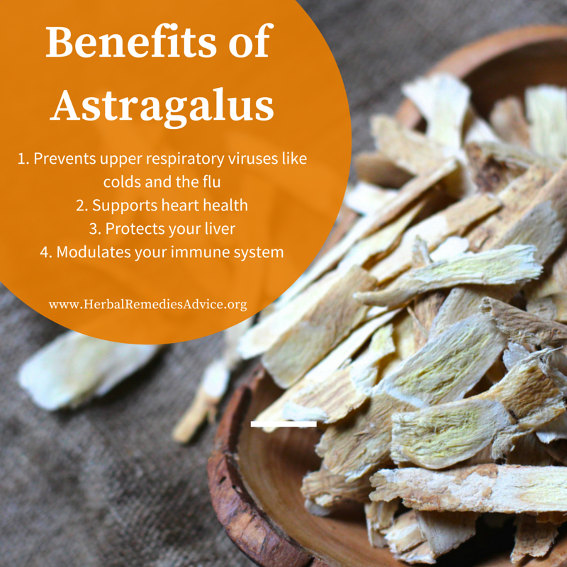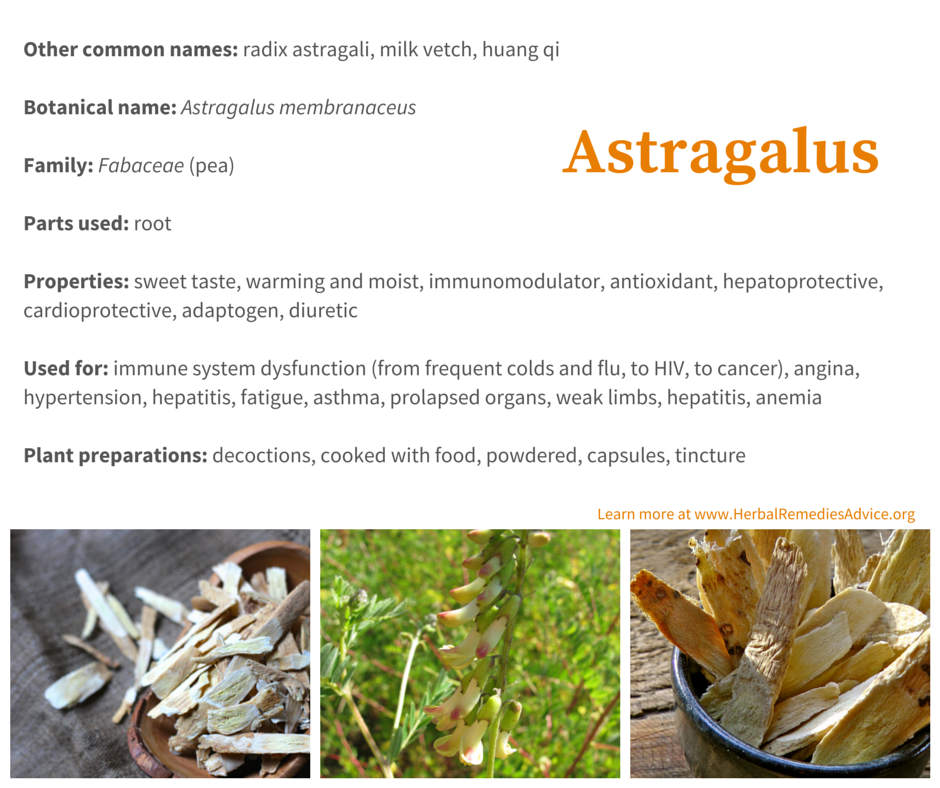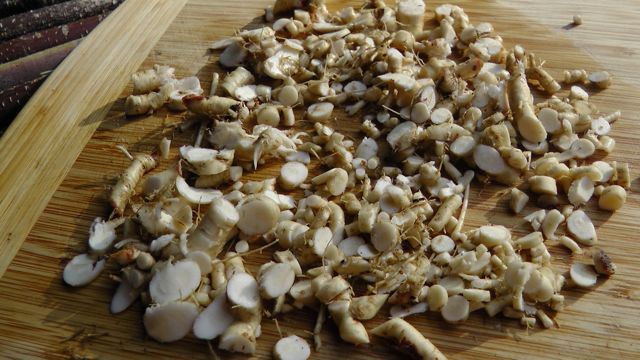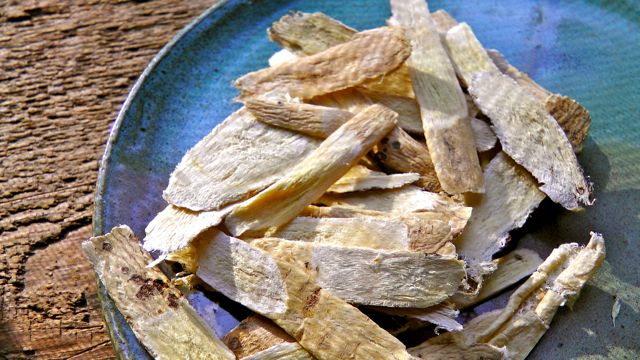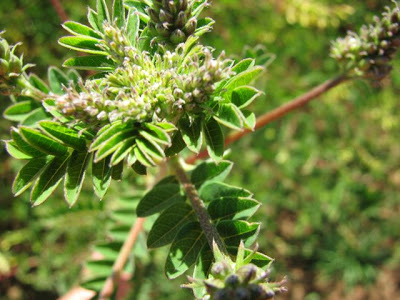Get weekly tips, recipes, and my Herbal Jumpstart e-course! Sign up for free today.

Astragalus Health Benefits
Share this! |
|
Would you like an ally that can help to increase your energy naturally while dynamically supporting your immune system? If that’s you, then you’ll love this episode on Astragalus health benefits!
Astragalus membranaceus, also known as Astragalus propinquus, is filled with so many powerful gifts. This is a plant I would never want to be without, especially during the winter months.
You’ll also receive FREE access to a spicy-sweet astragalus tea recipe, which is my favorite way to enjoy Astragalus health benefits.
After listening in, you’ll know:
► What is the best way to improve immune system function?
► Does it matter what species of astragalus you consume?
► Is there anyone who should not work with astragalus?
► What is an effective dosage for the best astragalus benefits?
-- TIMESTAMPS --
- 00:00 - Introduction to astragalus (Astragalus membranaceus, syn. Astragalus propinquus)
- 03:02 - Astragalus energetics
- 04:47 - Astragalus modulates the immune system and is anti-viral
- 07:51 - Astragalus strengthens the lungs
- 08:42 - Astragalus benefits for people with cancer
- 10:11 - Astragalus addresses Type 2 diabetes
- 11:34 - Astragalus benefits for your brain
- 12:23 - Astragalus protects the heart and liver
- 13:18 - Astragalus protects the kidneys and builds blood
- 14:38 - Astragalus heals wounds, injuries, and builds bones
- 15:25 - How to identify astragalus (Astragalus membranaceus, syn. Astragalus propinquus)
- 17:20 - Special considerations for working with astragalus
- 19:01 - Astragalus tea recipe
- 21:53 - Astragalus Fun Fact
Download Your Recipe Card!
l
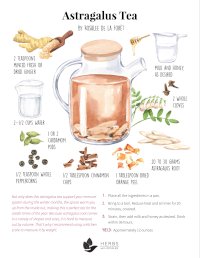
Transcript of the Astragalus Health Benefits Video
If you’d like to increase your energy naturally while dynamically supporting your immune system then you’ll love this episode on Astragalus health benefits.
Astragalus membranaceus, also known as Astragalus propinquus, is filled with so many powerful gifts. This is a plant I would never want to be without, especially during the winter months. There’s many ways to enjoy Astragalus health benefits but my favorite is an Astragalus Tea Recipe which I’ll share with you in just a bit so stay tuned.
During the dark cold months of the year, you will most likely find a pot of astragalus tea simmering on our wood stove. This herb is so loved in our household that our small family of two goes through several pounds every year. Its deeply nourishing gifts support our immune systems as well as our energy levels. The benefits of astragalus aren’t simply in the short term, it’s also an important herb to support longevity and quality of life in the elder years.
Originally from China, where it is commonly used in medicinal formulas as well as prepared in food, astragalus has been widely adopted by western herbalists. The root and polysaccharide extracts have been studied extensively for applications against cancer, heart disease, blood sugar imbalances and wound healing.
Do you have experience with astragalus benefits? I’d love to hear about it in the comments at the bottom of this page. Your comments mean a lot to me! I love cultivating a community of kind-hearted plant-loving folks! Plus, it’s always interesting and insightful to hear the experiences of plant lovers out there. Your suggestion may also help others!
Okay, let’s dive in..
Astragalus Health Benefits: Energetics
Astragalus root is a sweet tonic herb that is slightly warming. Like many sweet herbs, it is used to nourish and build. Western herbalists commonly use it for people who have signs of depletion, including low energy and frequent illnesses.
Astragalus is often compared to ginseng (Panax ginseng) in regards to its adaptogen and strengthening qualities. While they are similar in action, astragalus is less heating and stimulating. It is sometimes said that younger folks will benefit most from astragalus while older folks may find ginseng more beneficial.
In Traditional Chinese Medicine Astragalus is called Huang Qi, which refers to the yellow colored roots. It is considered to be a Spleen Qi Tonic and a Lung Qi Tonic.
As a Spleen Qi Tonic it renews energy, increases appetite, improves digestion and lifts prolapsed organs.
As a Lung Qi tonic, Astragalus root is useful for those who are frequently coming down with colds and the flu, have difficulty breathing (such as asthma) or those who sweat spontaneously.
If you’re new to the concepts of herbal energetics and understanding if a plant or a condition is hot or cold or damp or dry then I highly recommend my first book, Alchemy of Herbs.
This bestselling book shows you exactly how to choose herbs that are best for you, based on your personal energetics. It also includes an entire chapter on Astragalus, including some of my favorite recipes like Astragalus and Cardamom spiced rice, which is a cozy and yummy dessert.
Astragalus Health Benefits: Modulates the Immune System and is Anti-viral
Astragalus root is renowned for its beneficial effect on the immune system. It has been shown to reduce the occurrence of common respiratory illnesses, inhibit tumor growth and bolster immune system activity.
One of my favorite astragalus health benefits is to modulate the immune system. Sometimes astragalus is referred to as an immune system booster, but what it actually does is much more complicated and dynamic than that!
Astragalus root really shines for people who frequently come down with upper respiratory viruses like a cold or the flu. By strengthening your immune system over time, astragalus can help your immune system better defend against pathogens.
As an immune modulator, astragalus can help balance the immune system so that it’s operating better overall. Many people with autoimmune conditions and seasonal allergies have benefited from Astragalus, not because it boosts their already overactive immune system, but because it helps to modulate their immune system so that it’s working smarter, not harder. That being said, astragalus isn’t for everyone with an overactive immune system, I’ll go over special considerations a bit later in this episode.
Astragalus has also been shown to have antiviral activity.
One in vitro study showed that polysaccharides derived from Astragalus may disrupt the Epstein Barr cycle and could possibly be beneficial for people with this virus.1
Another in vitro study showed that an extract of astragalus had “potent anti hepatitis B activity”.2
You might be wondering how Astragalus might help prevent COVID19. Unfortunately we don’t yet have human clinical trials but researchers are wondering about it.
An in vitro study was published in March of 2022 that showed that honeysuckle and astragalus together could inhibit the virus. They wrote, “In conclusion, our findings demonstrate that honeysuckle and [astragalus] have the potential to be used as an inhibitor of SARS-CoV-2 virus entry that warrants further in vivo analysis."3
A couple of older studies have shown promising results using astragalus injections in patients with tuberculosis. One study concluded that astragalus injections enhanced the therapeutic effects of the tuberculosis treatment.4
Of course these injections aren’t a DIY home experiment, but neither is tuberculosis. However, it’s interesting to see research that could lead to more integrative health solutions for patients with complicated diseases.
Astragalus is a fabulous herb for improving immune system function, but of course, it will work best alongside other therapies like spending time outdoors, eating a nutrient-dense diet, having good amounts of Vitamin D, and so on.
Astragalus Health Benefits: Strengthens the Lungs
In Traditional Chinese Medicine astragalus is considered to be a Lung Qi Tonic and is commonly used in formulas to strengthen lung health.
A recent human clinical trial showed that astragalus, when used in combination with other drugs, has the ability to prevent the occurrence of asthma in children.5 Astragalus extracts have also been shown to improve immune function in patients with acute exacerbation of COPD.6
A 2022 A systematic review and meta-analysis concluded that herbal formulas containing Astragalus “can effectively alleviate the clinical symptoms of radiation-induced lung injury, reduce the toxic side effects, and is safe to use in clinic.”7
Astragalus Health Benefits for People with Cancer
Astragalus has long been used in Traditional Chinese Medicine to support people diagnosed with cancer. Today it is commonly used in formulas as adjunctive medicine during cancer treatments.
In an in-vitro trial, polysaccharides extracted from Astragalus were shown to block breast cancer cells by upregulating the level of nitric oxide and tumor necrosis factor-α.8
Other in vitro studies have shown that Astragalus polysaccharides have promising results against lung cancer cells9 and human hepatocellular carcinoma cells.10
Sometimes cancer becomes resistant to chemotherapy treatments. One in vitro trial found that Astragalus polysaccharides “may increase the sensitivity of cervical cancer cells to chemotherapy by regulating the cell autophagy”.11
Another species of Astragalus, A. boeticus, was shown to be effective against colon cancer, in vitro.12
Astragalus is currently being studied to see if it can help patients with cancer-related fatigue.
While astragalus is being increasingly studied in regards to its benefits against cancer, it’s important to note that, while these initial studies are promising, we do not have human clinical trials to draw any conclusions from.
Astragalus Health Benefits for Type 2 Diabetes
Type 2 diabetes is a chronic metabolic disease with many causes. Reversing type 2 diabetes requires a holistic approach that involves diet, sleep habits, movement and more. Herbs can also play a role in addressing type 2 diabetes and in recent years Astragalus has been shown to have some interesting beneficial effects for people with type 2 diabetes.
One review’s findings showed that Astragalus “could improve insulin resistance by reducing inflammatory factors in plasma, increasing glucose transport in skeletal muscle, enhancing liver glycogen synthesis, and activating insulin-sensitizing hormone secretion.”13 In other words, Astragalus can both protect people from the harmful effects of type 2 diabetes while also increasing insulin sensitivity which addresses the root cause.
Another preliminary in vitro study showed that Astragalus polysaccharides may be beneficial for people with diabetic cardiomyopathy.14
If you’re interested in working with herbs like astragalus to address inflammatory conditions, then check out my online course, Cooling Inflammation.
Astragalus Health Benefits for the Brain
Neurodegenerative diseases, like Parkinson’s and Alzheimers, affect millions of people. There is growing interest that Astragalus may be able to help.
A review published in 2022 reported that, “based on the current literature, we conclude that Astragalus is a promising dietary herb with multiple potential signal modulating applications that mainly include the modulation of neurotransmitters and receptors, anti-inflammatory activities, inhibition of amyloid aggregation, induction of myelin sheath repair and neurogenesis, as well as activation of the signalling pathways relevant to neurological diseases.”15
Astragalus Health Benefits for the Heart and Liver
Astragalus root has long been used in Chinese Medicine to protect the heart and lungs. Recent studies have confirmed its protective qualities.
In one study patients with coronary heart disease were split into two groups: a placebo and a group taking a Chinese herb formula that included astragalus. After three months those taking the Chinese herb formula had “improved arterial functions and reduced inflammatory factor activities”.16
Astragalus root has been shown to protect the liver in the case of injury possibly due to its ability to decrease oxidative stress.17
Winston and Maimes, authors of Adaptogens: Herbs for Strength, Stamina and Stress Relief recommend using astragalus with other liver protecting herbs like milk thistle, schisandra and turmeric.
Astragalus Health Benefits for the Kidneys and Building Blood
Here’s an interesting case report! A 79 year old woman had kidney failure but did not want to receive dialysis.
She was instead given an herbal formula that contained Astragalus membranaceus, Codonopsis pilosula, Ligustrum lucidum, Panax quinquefolius, and Rhodiola sacra. After three months of taking this formula she had improved kidney function and improved kidney size.18
Astragalus has been used to treat nephritis caused by complications from Lupus, when used in conjunction with pharmaceutical drugs.19
It is also used to build blood and can be considered for those with anemia, especially anemia related to poor digestion.
One study showed that patients with chronic aplastic anemia who received Stanozolol (a pharmaceutical drug for anemia) alongside astragalus had significantly better outcomes than those receiving the pharmaceutical drug alone. The researchers concluded that astragalus injections could promote new blood formation.20
In Chinese Medicine, Astragalus is recommended for postpartum fever due to qi and blood deficiency and it is also used in the recovery stage from severe loss of blood.
Astragalus Health Benefits to Heal Wounds, Injuries and Build Bones
There are so many astragalus health benefits. It can even be used to heal injuries and even build bones.
In The Chinese Herbal Medicine Materia Medica by Bensky, et al. astragalus is recommended to promote the discharge of pus and to generate flesh when there are chronic ulcerations or sores due to deficiency.
One recent preliminary study showed that astragalus root extracts may decrease hyperpigmentation.21
In one interesting randomized, double-blind, placebo-controlled parallel study a mixture using astragalus was shown to increase height in children who had abnormally short stature.22
Botanically Speaking
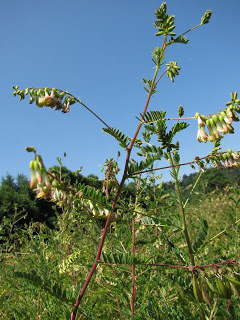 Astragalus is a perennial member of the pea family.
Astragalus is a perennial member of the pea family.There are over 2,000 different species in the Astragalus genus. Some of these plants are toxic and rarely are they known to have the same qualities as Astragalus propinquus. (A few other species are used medicinally. There is some evidence that the species Astragalus boeticus has similar immune modulating properties.)
There are many Astragalus species in North America that grow wild and are often referred to as milk vetch. These are not safe to use.
Herbalists use Astragalus propinquus (which used to be A. membranaceus) as medicine.
Astragalus is a perennial plant and a part of the pea family. I’m standing in my garden right now alongside a three year old Astragalus plant.
Astragalus grows from 3 to 5 feet in height with sprawling stems. It likes to grow in sandy soils that drain well.
The flowers appear in racemes of pea flowers that range from white to light yellow and light pink.
The flowers develop into seed pods.
The roots can be dug in the spring or fall after four years of growth. The taproots grow 3 - 4 feet into the ground. One healthy plant yields about a 3/4 pound of root.
Since it takes so many years to mature you’d need a lot of space in order to grow your own Astragalus in sufficient quantities. I like having the plant in my garden, but I rely on other herbal farmers and online apothecaries to keep us in good supply year after year. Luckily more and more US based farmers are starting to grow Astragalus.
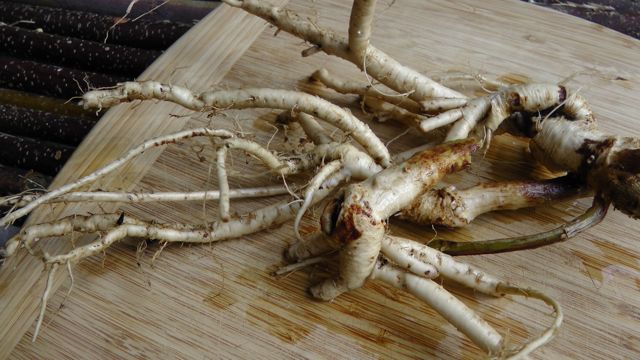 Fresh astragalus root
Fresh astragalus rootAstragalus Health Benefits: Astragalus Side Effects
Astragalus is generally regarded as safe but there are some safety considerations.
- The Botanical Safety Handbook reports that “The T-cell-stimulating activity of astragalus could, theoretically, contradict the effects of immune suppressant drugs such as cyclosporine and corticosteroids.”
- In Traditional Chinese Medicine astragalus is avoided when there are signs of heat or yin deficiency.
- It is often said that it’s best to take astragalus to prevent colds and the flu but it should be avoided during acute illness. While I would say that is generally true, its use in Traditional Chinese medicine is more nuanced. For example, if someone is sick and feeling weak, astragalus could be used to strengthen and boost them towards wellness.
- Astragalus used to be commonly sold as large flat tongue depressor-looking roots. The more yellow the roots, the more highly they were prized. Unfortunately these roots are often manipulated with yellow dyes.
- While astragalus is traditionally used as a decoction or cooked with foods, western herbalists also commonly use a tincture of the root. Throughout my clinical practice I recommended astragalus using dosages traditionally found in Traditional Chinese Medicine (10-30 grams). It is difficult to get this dose using a tincture or capsules. Many of the promising clinical studies involving astragalus are using concentrated extracts and injections.
Astragalus Health Benefits: Astragalus Tea Recipe
As I’ve been mentioning, astragalus is a building and nourishing herb. The best results with astragalus are seen when it is taken long term and in fairly high dosages.
You can commonly find astragalus being sold as powder, whole roots, or roots that are cut and sifted. I like to buy the sliced roots for my soups (since they are easy to remove) or the cut and sifted roots for use in tea/decoction blends.
The following astragalus tea recipe is one of my favorite and most-used herbal recipes. It’s one that we are commonly brewing up throughout the winter months. This particular recipe can also be found in my first book, Alchemy of Herbs. Also in that book are my recipes for Astragalus and Cardamom Rice and Astragalus Bone Broth.
Not only does this astragalus tea support your immune system during the winter months, the spices warm you up from the inside out, making this a perfect tea for the colder times of the year. Because astragalus root comes in a variety of shapes and sizes, it is hard to measure out by volume. That’s why I recommend using a kitchen scale to measure it by weight.
Here are the ingredients for this Astragalus Tea Recipe
- 20 to 30 grams astragalus root
- 1 tablespoon dried orange peel
- 2 teaspoons minced fresh or dried ginger
- 1/2 tablespoon cinnamon chips
- 1/2 teaspoon whole peppercorns
- 1 or 2 cardamom pods
- 2 whole cloves
- 2 ½ cups of water
To make this Astragalus tea:
- Place all the ingredients in a pan with 2 1/2 cups of water.
- Bring to a boil. Reduce heat and simmer for 20 minutes, covered.
- Strain, then add milk and honey as desired. Drink within 36 hours.
Astragalus Health Benefits: Fun Fact
Can astragalus help you live longer? Maybe!
When studying longevity, researchers often look at telomeres. A telomere is a structure found at the end of a chromosome and is a region of repetitive DNA. Its job is to prevent deterioration of the chromosome. Shortened telomeres are associated with poor health and aging.
One in vitro study showed that astragalus can slow telomere shortening as well as reduce DNA damage and increase the improvement of DNA repair ability.23
In a 2019 human clinical trial researchers showed that healthy volunteers taking a mixture that included astragalus polysaccharides had significantly longer telomeres than those taking a placebo. They also showed that this was especially significant in older donors. The study concluded that this mixture could be used in the treatment of chronic age-related disorders.24
Astragalus may also promote longevity by increasing autophagy,which is like our internal clean up system, and by reducing oxidative stress.
If you enjoyed this video on astragalus benefits and you value trusted herbal information, then I hope you’ll stick around! The best way to get started is to sign up for my weekly newsletter below so you can be the first to get my best herbal insights and recipes.
Citations for Astragalus Health Benefits
Click to show/hide.
Tired of herbal overwhelm?
I got you!
I’ll send you clear, trusted tips and recipes—right to your inbox each week.
I look forward to welcoming you to our herbal community! Know that your information is safely hidden behind a patch of stinging nettle. I never sell your information and you can easily unsubscribe at any time.

Rosalee is an herbalist and author of the bestselling book Alchemy of Herbs: Transform Everyday Ingredients Into Foods & Remedies That Healand co-author of the bestselling book Wild Remedies: How to Forage Healing Foods and Craft Your Own Herbal Medicine. She's a registered herbalist with the American Herbalist Guild and has taught thousands of students through her online courses. Read about how Rosalee went from having a terminal illness to being a bestselling author in her full story here.
